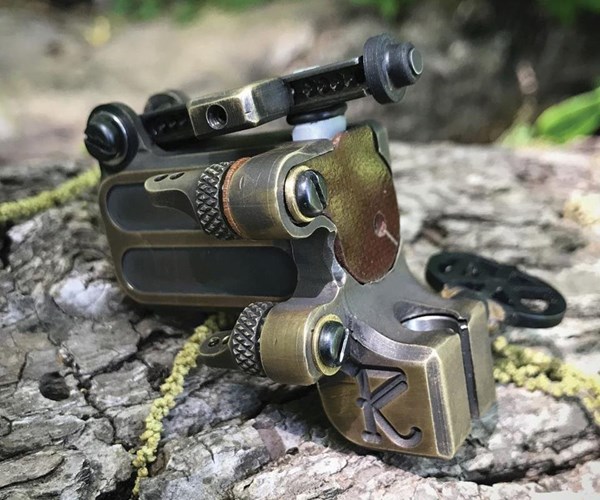Case Study: Manufacturing the Tools for Tattoos
Dan Kubin’s artistry isn’t just skin deep. He’s found a way to channel his creativity into another part of the tattooing process—designing and developing the machines that apply tattoos.
Share







Dan Kubin used to prototype his distinctive rotary tattoo machines using hobbist-type equipment, but the process was too slow to keep up with his creativity and the demand for his products.
When most people think of tattoos, they picture the designs permanently inked on someone’s body. Many of these are beautiful and intricate works of art created by a talented and gifted artist. But tattoo artist Dan Kubin has added another layer to his creativity; he designs and develops the machines used to apply tattoos. Moreover, these machines themselves are works of art.
Mr. Kubin became interested in tattooing when he served as a machinist and welder in the U.S. Air Force. He later began to design and develop tattoo machines manually, outsourcing their machining in bulk. This system was unsustainable, however, due to the number of different designs he makes, combined with the custom-nature of his work. His constantly evolving creativity was frustrating for everyone involved, he says.
Instead of spending a day and a half using a small, hobbyist-type benchtop mill with a digital readout and a rotary table to create the basic frame of new tattoo machine prototypes, Mr. Kubin decided to buy a milling machine with a control so he could develop parts exactly the way he wanted within his own timeframe.
Related Content
-
From Tradition to Transformation: Century-Old Manual Machine Shop Adds CNCs
After 122 years of working with manual mills and lathes, this fifth-generation shop acquired assets of a local CNC machining business and hired the owner. Here’s how it’s going a year later.
-
Continuous Improvement and New Functionality Are the Name of the Game
Mastercam 2025 incorporates big advancements and small — all based on customer feedback and the company’s commitment to keeping its signature product best in class.
-
How this Job Shop Grew Capacity Without Expanding Footprint
This shop relies on digital solutions to grow their manufacturing business. With this approach, W.A. Pfeiffer has achieved seamless end-to-end connectivity, shorter lead times and increased throughput.













